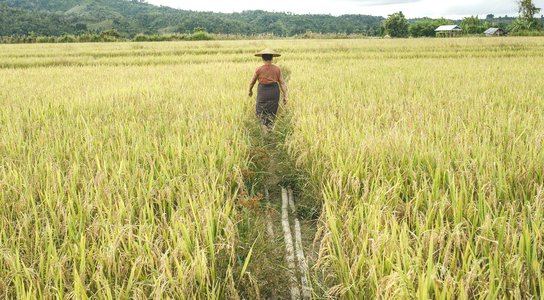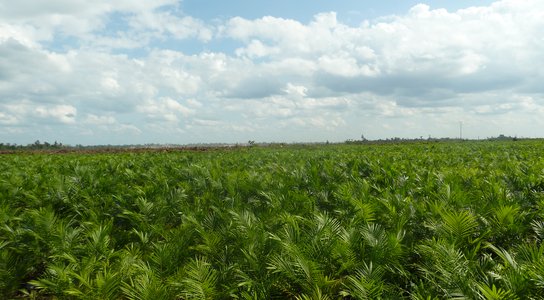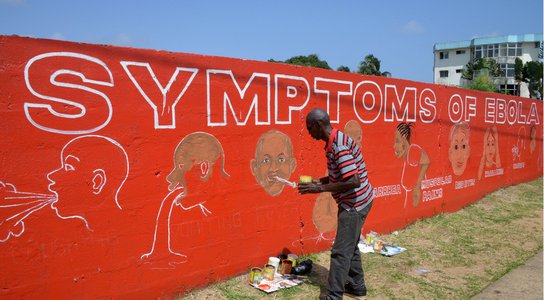Urgent reforms needed to protect citizens and regulate plantation companies.
As Liberia emerges as a new
frontier market for the cheapest, most popular vegetable oil globally, Liberians report being beaten, threatened, and
arrested for taking a stand against one of the world’s biggest palm oil plantations
in the southeast of the country.
State officials are said to be helping the palm oil company Golden Veroleum (GVL) harass communities into signing away their land and crush dissent. Global Witness reveals how GVL accelerated its operations at the peak of Liberia’s 2014 Ebola outbreak, holding meetings with hundreds of people and encouraging illiterate citizens to sign away their land rights when community support groups were staying home for risk of contagion. At this time GVL almost doubled the size of its plantation.
This behaviour hasn’t discouraged the world’s major banks from offering their services. Standard Chartered, HSBC, and Citibank alone hold shares in GVL’s parent company – Golden Agri-Resources (GAR) – worth nearly US$ 1.5 billion.
The case of GVL risks becoming the first chapter of a longer narrative of dispossession and abuse. Liberian President Ellen Johnson-Sirleaf has made agriculture a central pillar of the country’s development strategy, making repeated – yet so far unfulfilled – public assurances that palm oil will lift poverty in rural areas. In response to early protests at GVL’s plantation she called those who spoke out against the company “unpatriotic” as they risked discouraging future investors.
Hear from communities about signing deals with GVL, called Memorandums of Understanding (MoUs).
GVL has bought the rights to convert 2,600 km2 of southeast Liberia into an oil palm estate – an area the size of London and Barcelona combined. Its contract is valid for up to 98 years, affecting some 41,000 people.
Public meetings where landowners were encouraged to hand over their land to GVL were watched over by powerful local officials, and in at least one case armed police. Global Witness also documents several accounts of violent assaults and arbitrary arrests of those who voiced their concerns.
The benefits offered by GVL to communities in return have been negligible. Those willing to work for the company are promised access to free medical support and schools. For non-employees, the most tangible negotiated benefits Global Witness could find evidence of were six toilets.
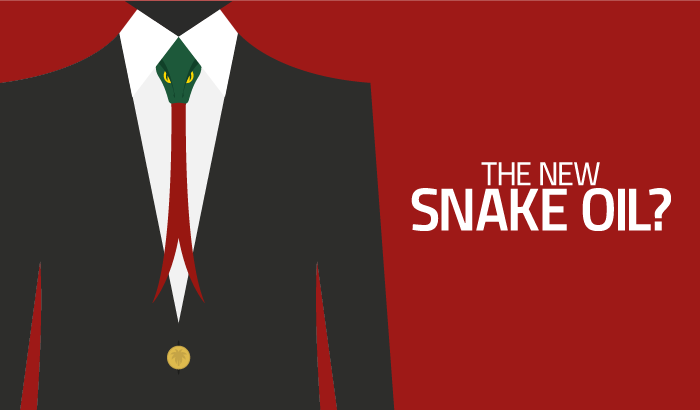
"Palm oil risks becoming Liberia’s snake oil. Just as con men in the United States sold fake snake oil as medicine, pretending it had magical healing qualities, palm oil developers are selling Liberians what may turn out to be false promises of a better future." Jonathan Gant, Global Witness campaign leader
The violence and intimidation documented in Liberia parallels a disturbing global trend of increased attacks on human rights activists who protect the environment and defend their land. Activists are being killed in record numbers, threatened and criminalised for standing in the way of so-called ‘development’.
Ten percent of Liberia is now earmarked for agricultural plantations – an area three times the size Beijing. This rapid expansion is taking place in a legal vacuum. There are no laws in Liberia to govern how agriculture companies should be awarded contracts, how they should operate, or how they will be held to account.
Global Witness is calling on Liberia’s government to investigate acts of violence, pass a law recognising that rural communities own their land, and regulate the country’s agriculture sector to bring an end to the impunity enjoyed by plantation companies.
Watch the rate of GVL expansion in Liberia from 2011 – 2015 here.
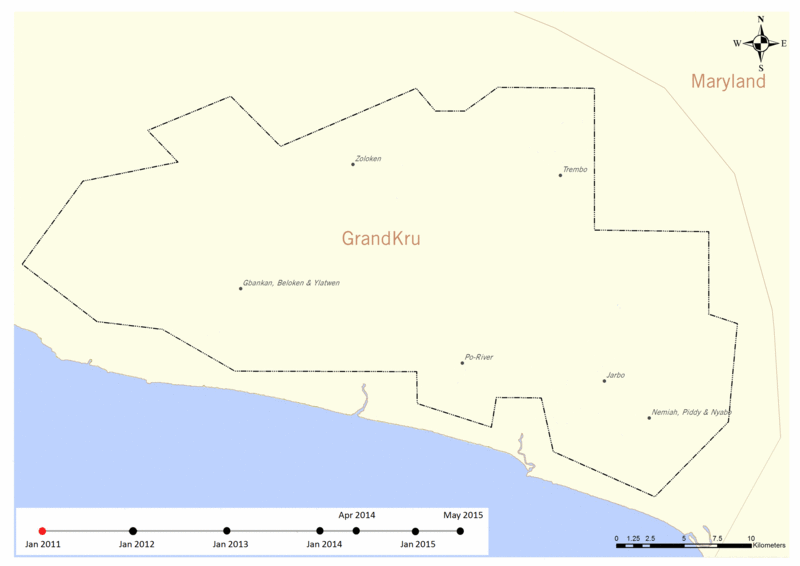
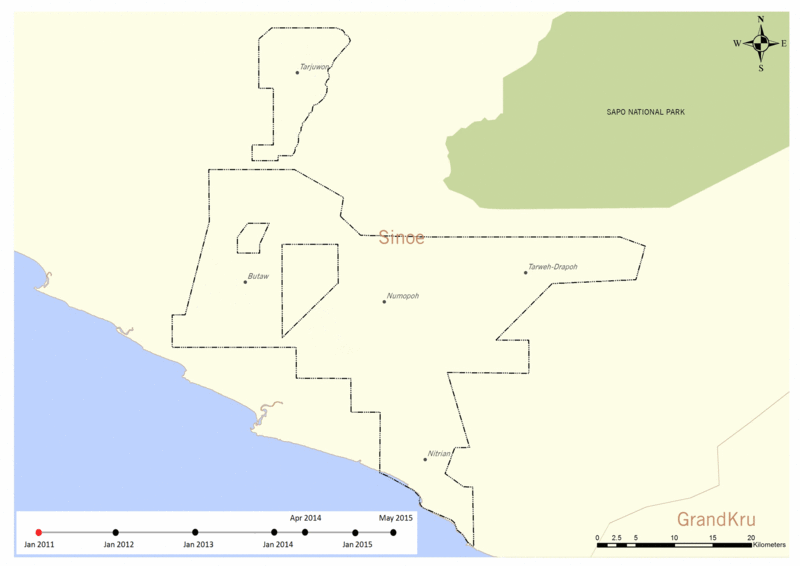
GVL and GAR have denied wrongdoing. GVL stated that it has played no part in the intimidation of community members in its plantation area and that its operations between August and October 2014 - when the Ebola outbreak was at its peak - were part of its long-term plan. GAR has acknowledged that its operations have experienced “challenges” but that it is working to improve its procedures. Representatives of HSBC and Citibank stated that its shares in GAR are held “in custody” for other ultimate (beneficial) shareholders.
Read full responses from GVL here, here, and here, and from GAR here. Communication from one of GAR's investors Kopernick Global Investors, can be found here.
Read The New Snake Oil report here
Download the press release here
